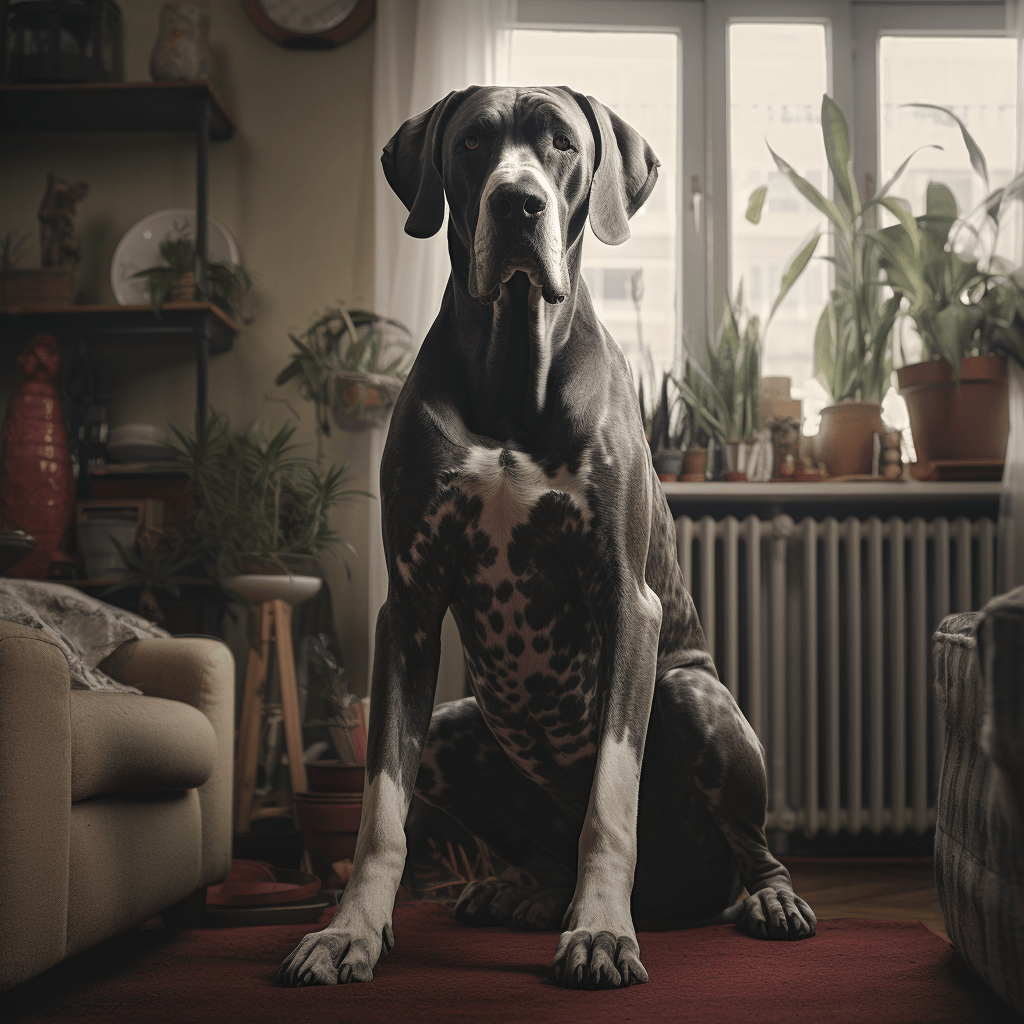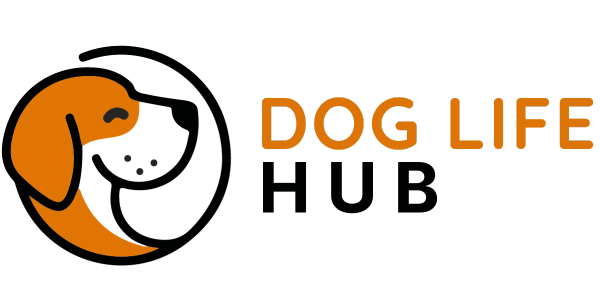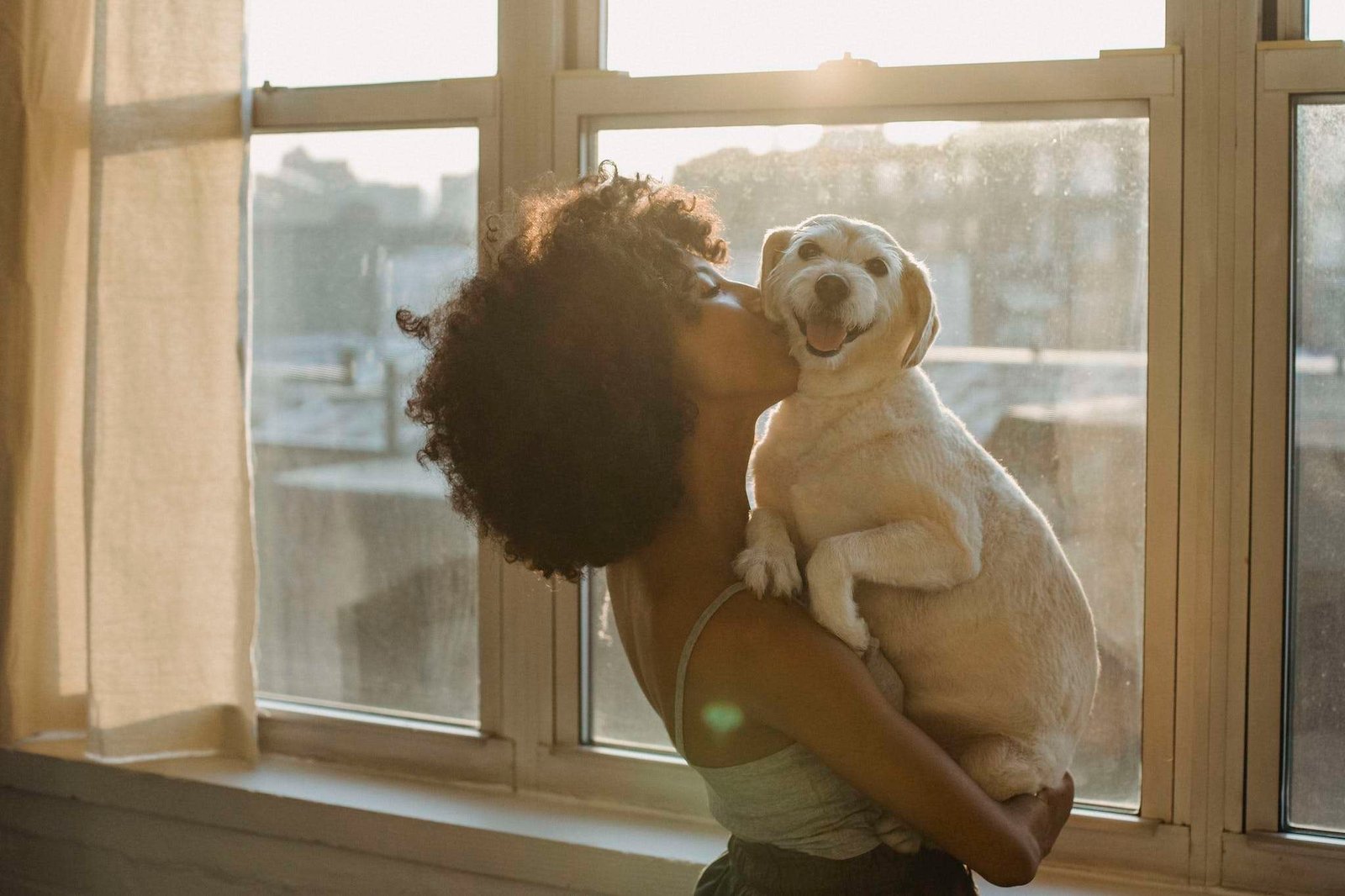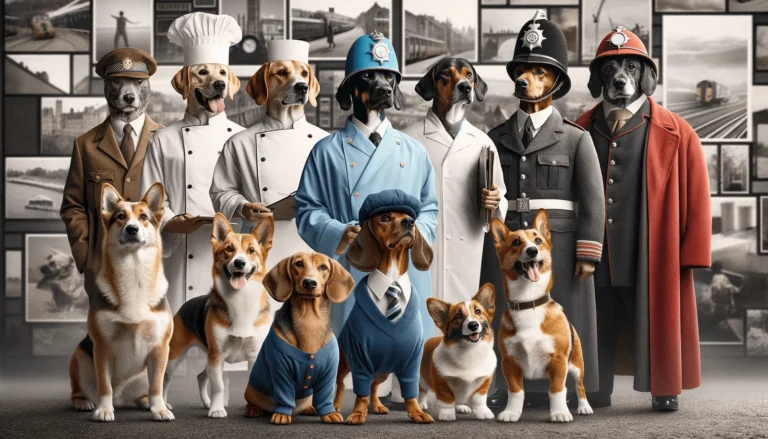Should I Get a Dog? Is a Dog Right For Me?
Are you ready for a dog?
The Short Answer
Before getting a dog, consider your lifestyle, time availability, living space, financial readiness, and long-term commitment.
Dogs require daily care, companionship, exercise, and can live for over a decade.
Ensure you can provide a stable, loving home that matches the dog’s breed, size, and energy level.
Factor in regular veterinary care, grooming, training, and potential health issues.
Make sure you are ready for the emotional and financial responsibilities of dog ownership to ensure a fulfilling relationship for both you and your future pet.
The Longer Answer
Owning a dog is a rewarding yet demanding experience, including several key aspects:
- Commitment: Dogs can live for many years, requiring a long-term commitment from their owners. This includes providing consistent care, attention, and stability throughout the dog’s life.
- Healthcare: Regular veterinary check-ups, vaccinations, flea and worm treatments, and addressing any health issues are crucial. Spaying or neutering is also recommended for most pet dogs.
- Feeding: Providing a balanced diet suitable for the dog’s age, breed, and health status is vital. Access to fresh water at all times is also essential.
- Exercise and Mental Stimulation: Dogs need daily exercise to maintain their physical health and mental well-being. The amount varies by breed, age, and health. Mental stimulation through games, training, and toys is also important.
- Training and Socialisation: Basic training is essential for good behaviour. Socialisation with people and other animals, especially at a young age, helps prevent fear and aggression.
- Grooming: Regular grooming, including brushing, bathing, and nail trimming.
- Cost: Owning a dog involves costs like food, veterinary care, grooming, training, and pet insurance. Emergency medical expenses can also be very high.
- Time and Emotional Investment: Dogs require time and emotional investment. They need companionship and should not be left alone for long periods.
- Housing Considerations: Ensuring a safe, comfortable environment for the dog, considering factors like space and living arrangements, is important.

Dog ownership can be immensely fulfilling, providing companionship, love, and a sense of purpose. However, it’s important to consider these responsibilities seriously before deciding to own a dog. Too many dogs are given up when potential owners realise just how hard it can be to care for a dog properly. If you have any doubts about bringing a dog into your life. please err on the side of caution.
Choosing not to have a dog right now doesn’t mean you can’t have one in the future.
Important Personal Factors to Consider Before Getting a Dog
It’s worth repeating a few of these.
- Time Commitment: Dogs require daily care, including feeding, exercise, grooming, and companionship. If your lifestyle involves long hours away from home or frequent travel, it might be challenging to provide the time a dog needs.
- Activity Level: Different dog breeds have varying energy levels and exercise needs. It’s important to choose a breed that matches your own activity level. For example, active individuals might prefer a high-energy breed, while those with a more sedentary lifestyle might opt for a lower-energy dog.
- Living Space: Consider whether your living space is suitable for a dog. Larger breeds typically need more space and a garden to run around, while smaller breeds can be more adaptable to apartment or flat living.
- Financial Responsibility: Owning a dog involves expenses such as food, veterinary care, grooming, and possible training classes. Ensuring you can financially support a dog is essential.
- Long-term Commitment: Dogs live for many years, requiring a long-term commitment. It’s important to consider future life changes (like moves, job changes, or children being born) and how a dog would fit into those plans.
- Family and Household Members: Consider the needs and allergies of everyone in the household. All family members should be comfortable with and committed to the decision to get a dog.
- Existing Pets: If you have other pets, consider how they would react to a new dog. Some pets may adjust well, while others might not.
- Personal Health and Mobility: If you have health or mobility issues, consider whether you can meet the physical demands of caring for a dog, like walking and picking up after them.
Other Important Things to Consider Before Getting a Dog
- Lifespan: Dogs typically live between 10 to 15 years, though this can vary significantly by breed and size. Smaller breeds often live longer than larger ones. This means owning a dog is a commitment that can span over a decade.
- Consistent Care: Throughout their life, dogs require consistent care, including daily feeding, regular exercise, grooming, and companionship. This routine must be maintained regardless of changes in your personal life.
- Healthcare Over the Years: Dogs need ongoing healthcare, which includes routine vet check-ups, vaccinations, and dental care. As they age, they may develop health issues that require more frequent vet visits, medication, or special care.
- Training and Behavioural Management: Training is not just for puppies; it’s an ongoing process. As dogs age, their behaviour can change, and they may require additional training or behaviour modification.
- Adapting to Life Changes: Over the years, your life circumstances may change (such as moving, changing jobs, or family dynamics). Each of these changes can impact your dog, and you’ll need to consider how to adapt your dog’s care and routine accordingly.
- Emotional Bond: The bond you’ll develop with your dog will deepen over time. This emotional commitment means considering their needs alongside your own in life decisions.
- Senior Dog Care: As dogs age, they may require special care, including adjustments in diet, more frequent veterinary visits, and management of age-related conditions like arthritis or vision loss.
- End-of-Life Decisions: Eventually, you’ll face decisions about your dog’s end-of-life care. This can include managing chronic illness, deciding on palliative care, and knowing when it’s time to say goodbye. You must be prepared for this.
- Financial Responsibility: The cost of caring for a dog extends throughout its life. This includes regular expenses like food and preventive care, as well as potential costs for emergency medical treatment.
- Time and Energy: The commitment to a dog is not just financial, but also involves your time and energy. Even as personal circumstances change, the commitment to providing a loving and stable home for the dog remains.
Life Stages of an Average Dog and an Owner’s Responsibilities
Before deciding to get a dog, it’s important that you’re aware of what the future will look like for you and your pet.

Puppy (0-1 year)
- Socialisation and Training: Expose puppies to various people, animals, and environments to develop well-rounded behaviour.
- Vaccinations and Health Checks: Complete vaccination series and regular health check-ups are vital.
- Feeding: Puppies require nutrient-rich food designed for their growth needs.
- House Training: This stage involves housebreaking and establishing a routine.
- Basic Training: Basic commands and obedience training are essential.
Adolescent (1-3 years)
- Continued Training and Socialisation: Reinforcing training and socialisation is crucial as the dog matures.
- Regular Exercise: Adequate exercise to manage higher energy levels.
- Healthcare: Routine vet visits for health maintenance.
- Behavioural Adjustment: Addressing any emerging behavioural issues.
Adult (3-6 years for large breeds, 3-8 years for small breeds)
- Stable Routine: Consistent exercise, feeding, and care routine.
- Health Monitoring: Regular vet check-ups; watch for signs of common adult diseases.
- Dental Care: Regular dental care is important.
- Weight Management: Monitor diet and exercise to prevent obesity.
Mature (6-10 years for large breeds, 8-12 years for small breeds)
- Adjusted Exercise: Modify exercise routines to suit aging joints and energy levels.
- Health Screenings: More frequent health screenings for age-related conditions.
- Dietary Adjustments: May need dietary changes for aging dogs.
Senior (10+ years for large breeds, 12+ years for small breeds)
- Veterinary Care: Increased veterinary care, possibly with a focus on chronic condition management and pain relief.
- Comfort: Providing a comfortable living environment to accommodate decreased mobility and sensory abilities.
- Diet and Exercise: Adjusting diet for lower energy needs and gentle exercise to maintain mobility.
- Regular Monitoring: Close monitoring for signs of pain or discomfort and changes in behaviour or appetite.
Geriatric
- Palliative Care: Focus on comfort and quality of life.
- Regular Assessments: Frequent assessments of health and comfort levels.
- End-of-Life Decisions: Eventually, you may need to make decisions regarding end-of-life care.
Average Costs of Dog Ownership
These are averages for the UK, and of course costs will vary across breeds, health circumstances of a particular dog, and the owner’s lifestyle.
Initial Costs
- Purchase/Adoption Fees: Buying a dog from a breeder can vary significantly depending on the breed, ranging from a few hundred to several thousand pounds. Adoption fees from shelters are generally lower, often around £50 to £200.
- Initial Veterinary Care: This includes initial vaccinations, microchipping, and potentially spaying/neutering. Costs can range from £100 to £300.
- Supplies: Essential items include a bed, crate, food and water bowls, collar, leash, toys, and grooming supplies. Initial setup costs can be around £100 to £200.

Ongoing Costs
- Food: Depending on the dog’s size and diet type, monthly food costs can range from £20 to £60 or more for specialty diets.
- Routine Veterinary Care: Annual check-ups, vaccinations, flea, tick, and worm treatments can total around £100 to £300 per year.
- Insurance: Pet insurance is highly recommended to help cover veterinary bills. Premiums can vary widely based on coverage, breed, and age, typically ranging from £20 to £70 per month.
- Grooming: For breeds requiring regular grooming, costs can be £30 to £60 per session, potentially monthly or bi-monthly.
- Dog Walkers/Day-care: If required, dog walkers can charge around £10 to £20 per walk, and day-care can range from £15 to £30 per day.
Emergency and Additional Costs
- Emergency Veterinary Care: Costs for emergency treatments or surgeries can range from a few hundred to several thousand pounds. This is where insurance can be particularly beneficial.
- Training Classes: Group training classes can cost around £50 to £150 for a course, while individual training sessions can be more.
- Replacement Supplies: Replacing toys, beds, and other supplies as they wear out.
Deciding on Where to Get Your Dog From
When deciding between adopting a dog and buying one from a breeder, there are several important considerations to take into account, including ethical concerns:
Adopting a Dog
- Rescuing an Animal: Adoption often means providing a home to a dog that may have been abandoned, neglected, or surrendered. It’s a chance to make a significant difference in an animal’s life.
- Cost: Adoption fees are generally lower than the cost of buying a dog from a breeder. These fees usually cover initial veterinary care, including vaccinations and spaying/neutering.
- Breed Variety: Shelters and rescues often have a wide range of breeds and ages, including mixed breeds, which can be a great option for many potential owners.
- Supporting Animal Welfare: Adopting from shelters or rescue organizations supports efforts to combat pet overpopulation and reduce the number of animals in need.
- Unknown History: Adopted dogs may come with unknown history or trauma, requiring patience and potentially more training or rehabilitation.
Buying from a Breeder
- Predictability: When buying from a breeder, especially a reputable one, you often have more information about the dog’s lineage, health, temperament, and potential size, which can be important for some owners.
- Breed-Specific Traits: If you’re looking for specific breed traits, a reputable breeder can provide a dog that is a good representation of those characteristics.
- Puppyhood: Buying a puppy allows you to shape its early experiences, training, and socialization from a young age.
Ethical Considerations
- Avoid Puppy Mills and Irresponsible Breeders: It’s crucial to avoid supporting puppy mills and irresponsible breeders who prioritise profit over the well-being of the dogs. These places often have poor living conditions and lack proper medical care.
- Research Breeders Thoroughly: If you decide to buy from a breeder, choose one who is reputable, ethical, and transparent. They should be willing to show you where the dogs live, provide health clearances, and answer any questions about their breeding practices.
- Support Responsible Shelters/Rescues: If adopting, choose a shelter or rescue organization that takes good care of their animals, is transparent about the animal’s health and history, and works to match dogs with suitable homes.
- Consider the Dog’s Needs: Whether adopting or buying, always consider if you can meet the specific needs of the dog, including its breed, temperament, and health requirements.
Whether you choose to adopt or buy a dog, the decision should be made carefully, considering your own lifestyle and the needs of the dog. Ethical considerations are vital in both scenarios to ensure that you are supporting practices that prioritise the health and well-being of the dogs.
Final Thoughts
Owning a dog is amazing. Dogs are amazing. Many people underestimate just how hard it can be to care for a dog, though. Responsibilities to a dog can eat into social lives, finances, emotions and even relationships with other people – there’s a lot of truth in the ‘It’s me or the dog,’ saying!
Of course I want people to provide homes for dogs – especially those dogs in shelters, but it would be wonderful if every dog that was adopted or bought could look forward to a life in a loving forever home, but unfortunately this isn’t the case. People take a dog in with the best intentions, but when it doesn’t work out, it’s the dog that suffers.
Thanks for reading, and if you do decide you’re ready to give a dog a loving home – I’m happy for both you and your dog!







